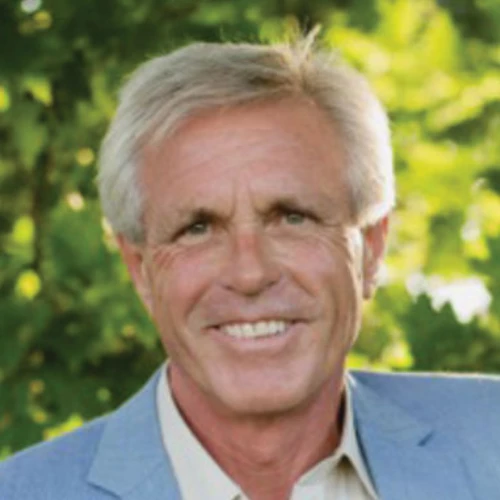“Our body is our most proximate, intimate, and useful tool – and yet we graduate from school knowing more about the principal exports of Chile than we do about our own selves south of the neck.” ~ Tom Myers
As a culture, we have become disenfranchised from our body and the subtle somatic cues that guide us through life and living, says renowned author and somatic visionary Tom Myers.
We have lost touch with the common ’sense’ that comes from the body, and have become a society of ‘kinesthetically illiterate’ citizens.
Once we lost this vital connection, we lose the ability to stay tuned to the essential bodily sensations needed to guide ‘intuitive’ behavior. We plunk ourselves in chairs and stimulate our eyes and ears so much that we are losing a precious resource – our contact with our sense of self.
As a result, we live in a culture with an obesity epidemic, where people are unable to feel the simple bodily signals of satiety, and are unable to tell when they are hungry or not. We have become divorced from bodily sensations like hunches and intuitive guidance essential to navigate through life.
And, we have lost touch with how to sense and handle the physical aspects of our emotions, leaving us more vulnerable to emotional overwhelm, stress and adrenal overload, leading to feelings of anxiety and depression.
In this online course, Tom Myers takes a deeper look at the importance of kinesthetic awareness –the feeling sense of the body—and the role of yoga and movement therapy in keeping our the rich feed of information from the body to the brain.
The kinesthetic sense of the body, argues Tom, is not only a sense, but a form of intelligence, like mathematic or linguistic intelligence. The lack of attention to the kinesthetic sense has produced an epidemic of ‘kinesthetic dystonia,’ in which the body is constantly misused.
The current epidemic of unnecessary muscle tension, structural pain, and early degeneration due to dis-, mis-, or ab-use of our bodies, reflects our reliance on what can be seen and heard over what can be felt. We are strangers to our bodies, and we pay a high price for this lack of movement.
Yoga, when practiced in a way that fosters enhanced body awareness, is a direct answer to this ‘dis-ease’ – and your results will be better if you work from that understanding.
In this course, Tom explores the role of yoga teachers, movement therapists and bodyworkers in fostering greater kinesthetic learning, and why this simple approach can present a powerful means of allowing the body to heal itself.
Bonus! Special Yoga Practice on Fostering Body Awareness with Author and Yoga Therapist Leila Stuart

Also included is a special online yoga practice with Canadian yoga therapist Leila Stuart, co-author with Donna Farhi on their book Pathways to a Centered Body.
Learn why the yogic technique of pratyahara really is focused on fostering greater kinesthetic awareness, and a practical, step by step guide to incorporating this important element into your yoga practice and teaching.
Paths to Embodiment: What You Will Learn in this Course
The sources of ‘kinesthetic dystonia’
- Parental training
- School training
- ‘Sports’ – body enlivener or separator?
- Beating the work culture
- Combatting the ‘inactivity crisis’
Sources of kinesthesia
- Interception – how your organs talk to you
- Proprioception
- Nerve endings and how they speak
- Muscle spindles and length
- Golgi tendon organs and load
- Specialized endings and their ‘talk’
- The mystery and blessing of pain
- Skin and feet
- Eyes and vestibular system
- Ankles, hips, and mid-thoracic hinge
Working kinesthesia
- Your body image and how it works
- Berman and the ‘specular’ body – how you see yourself
- Holes in the body image
- Trauma and gaps in feeling
- Working kinesthesia in yoga
Trauma and stress in the moving body
- The nature of stress, eustress, and distress
- Autonomic function
- A picture of the world
- Challenge vs defeat
- How body movement handles stress
- Chicken shit vs bullshit vs elephant shit in stress relief
- How to make your yoga most effective at stress relief
A kinesthetic world
- A day in the life of the body-aware
- Body-positive in a body-negative society
- Making the most of your kinesthesi
This Course Also Includes:
- Yoga Practice Video: Also included is a special online yoga practice with Canadian yoga therapist Leila Stuart, co-author with Donna Farhi on their book Pathways to a Centered Body.
- Recordings of All Webinar Sessions: It’s generally acknowledged that many people only retain 10-20 percent of what they learn in a workshop. You will get access to the recordings of all webinar sessions – both MP3 (downloadable) and MP4 (streaming online), enabling you to go back and listen to the workshop as many times as you like.
- Transcripts of All Sessions: Ever wanted to refer to a certain part of a course? Even the best note takers miss a point every so often. With the transcripts of the webinar sessions, you can go back and refer to particularly important passages or clarify sections you were in doubt about.
This course qualifies for 3 CEs with Yoga Alliance.



